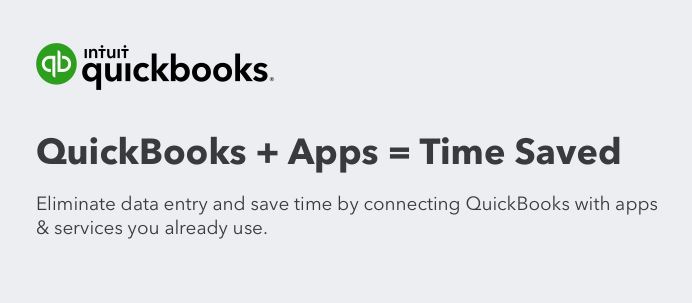
by admin
Many small business owners might put taxes on the backseat of their time and attention until IRS deadlines loom on the horizon.
That makes sense given most small business owners focus their attention on tasks like customer acquisition, servicing customers, balancing books, ordering products, managing employees—you know, those day-to-day business tasks.
However, taxes shouldn’t be a last-minute task. That last-minute rush to handle taxes can lead to failure to comply with tax laws, violating tax codes, or filling out forms incorrectly.
Incorrectly filing your small business taxes can open the door to possible IRS penalties.
That’s why the IRS recommends that small business owners consider using a professional tax preparer.
Below, we’ve gathered common mistakes small business owners make on their taxes.
Frequently Asked Questions about Four Common Tax Errors Made by Small Businesses
What Happens if a Small Business Underpays Estimated Taxes?
If small business owners expect to owe more than $1,000 in taxes when their return is filed, they should make estimated tax payments. Small business owners who don’t pay enough taxes through withholding and estimated tax payments may be charged a penalty.
What Happens if a Small Business Doesn’t Deposit Employment Taxes?
The IRS expects small business owners to deposit taxes they withhold plus the employer’s share of those taxes through electronic fund transfers. If a small business fails to deposit these funds correctly and on time they may be susceptible to an IRS penalty.
What Happens When a Small Business is Late Filing Taxes?
The IRS wants small business tax returns to be filed on time—just like individual returns. A small business owner or their tax professional should be aware of all tax requirements for the business and filing deadlines. Failure to make timely tax filings can incur late filing penalties for small businesses.
What Happens if a Small Business Owner Doesn’t Separate Business and Personal Expenses?
Many tax experts highly recommend separating business and personal expenses. This helps to organize legitimate business expenses from personal expenses. While the IRS doesn’t penalize small businesses for this, doing so can cause a business to make errors when claiming deductions. If those errors are found during a tax audit it may open the business up for penalties.
Consider Delegating Your Tasks to Business Solutions Unlimited
If you’re placing taxes on the back burner because of your other small business tasks, consider delegating. We understand your time is valuable and can help take some things off your plate.
If you’d like to explore the benefits of using a Virtual Assistant Firm, give us a call at (904) 429-4588 to see how we can help your business today.

by admin
Over the last couple of years, many states have decreased rates for workers’ compensation.
Here is a snapshot of just some of the states announcing decreased rates this year.
In December, Florida announced rates would be cut in 2020 by an average of 7.5%.
Delaware decreased an average of 12.55%.
Tennessee dropped rates by an average 7.1%.
Oklahoma cut rates by an average of 5%.
Oregon decreased rates by an average of 8.4%.
Montana cut premium rates by 8.6%.
Louisiana announced rates would drop by 8.4% by May 2020.
New Hampshire rates declined by 9.6%.
Decreased workers’ compensation rates mean a reduction in operating costs for businesses. As this trend continues, it may provide an opportunity for businesses to expand and hire new employees.
Since many states are modifying their workers’ compensation insurance rates, it’s important to conduct a yearly review of your policy.
Frequently Asked Questions about Workers’ Compensation Insurance
We’re often asked questions about workers’ compensation insurance by the small businesses we support. Below, we’ve compiled a list of common questions and answers about workers’ comp.
What is Workers’ Compensation Insurance?
Workers’ compensation provides employees medical and wage benefits if they are injured or become ill within the scope of their employment duties. Workers’ comp offers 5 basic benefits:
- Medical Care
- Temporary disability benefits
- Permanent disability benefits
- Supplemental job displacement benefits
- Death benefits
Who is Covered by Workers’ Compensation Insurance?
Workers’ comp protects employees of a business. Additionally, businesses are generally covered against lawsuit costs brought by employees injured on the job.
Where Do You Get Workers’ Compensation Insurance?
If allowed by the state you conduct business in, workers’ compensation insurance can be purchased through private insurance companies. In some states, workers’ comp can be purchased through a state fund.
Do All Small Businesses Need Workers’ Compensation Insurance?
Every state except Texas requires small businesses to have workers ‘compensation insurance if they meet the requirement as specified in the state they do business in.
For example, in Florida, a business must carry workers’ compensation insurance if they have more than four full-time or part-time employees. However, certain industries, like construction, must carry workers’ comp regardless of the number of employees.
Do Small Business Owners Need Workers’ Compensation Insurance Coverage?
In general, sole proprietors and partnerships do not require workers’ compensation insurance unless they have employees. Business owners can, if they choose, be covered by workers comp.
How Can a Small Business Be Exempt from Carrying Workers’ Compensation Insurance?
If a business does not exceed the number of employees required by the state to carry workers’ compensation insurance, they can file an exemption with the state. This requires an officer of the business to register the business as exempt.
Is there a Federal Workers’ Compensation Insurance?
The federal government provides its own workers’ compensation program covering federal employees and civilian contractors working for the federal government.
While small businesses are generally exempt from getting federal workers’ compensation insurance, some industries might require insurance.
For example, the Longshore and Harbor Workers’ Compensation Act (USL&H) requires employers of maritime workers to carry workers’ comp and USL&H coverage.
Consider Delegating Your Tasks to Business Solutions Unlimited
Do you have the time or staff necessary to find the right workers’ compensation insurance carrier for your business? If not, a virtual assistant firm like Business Solutions Unlimited can help.
If you’d like to explore the benefits of using a virtual assistant firm, give us a call at (904) 429-4588 to discuss the many ways we can help your business.

by admin
Remote online sellers face a changing legislative environment when complying with online sales taxes.
A bill (Senate Bill 126) recently submitted in Florida for the 2020 legislative session aims to require local and remote Internet sellers to collect and pay sales taxes. Currently, Florida consumers are responsible to pay sales taxes on online purchases from out of state sellers.
The Florida bill follows similar actions taken by more than 40 states after a 2018 U.S. Supreme Court ruling (South Dakota v. Wayfair Inc.) allowing South Dakota to collect sales tax from online purchases regardless of a physical presence within the state.
If passed, the Florida bill would impact remote sellers with over $100,000 in sales or 200 or more retail sales transactions annually.
Remote sellers encompass a range of businesses from large corporations like Amazon and Walmart to small home-based businesses. Basically, states consider any business without a physical state presence that a makes an internet sale in that state to be a remote seller.
Regardless of your business size, if you’re a remote internet seller you should become knowledgeable about the internet sales tax laws in States where you make sales.
Below, we provide helpful information on the current state of internet sales taxes.
States that Require Remote Sellers to Pay Internet Sales Taxes
Remote sellers that have established an economic nexus within a state that requires an internet sales tax may be required to collect sales taxes.
An economic nexus is established when remote online sellers make sales in a state even when they do not have a physical presence. State laws on economic nexus vary with regards to the sales threshold that would trigger sales taxes.
Thresholds vary from state to state.
Guide to Economic Nexus Thresholds that Trigger Remote Sellers to Collect Sales Tax on Online Sales
Below is an October 2019 sales amount threshold snapshot of states requiring online sales taxes.
- Alabama: $250,000
- Arizona: $200,000 in 2019, $150,000 in 2020, $100,000 2021 and beyond
- Arkansas: $100,000 or 200 separate sales transactions
- California: $500,000
- Colorado: $100,000
- Connecticut: $100,000 or 200 separate sales transactions
- Georgia: $250,000 or 200 separate sales transactions s ($100,000 starting January 1, 2020)
- Hawaii: $100,000 or 200 separate sales transactions
- Idaho: $100,000
- Illinois: $100,000 or 200 separate sales transactions
- Indiana: $100,000 or 200 separate sales transactions
- Iowa: $100,000
- Kansas: $0 (all remote sellers meet the state’s economic nexus regardless of size)
- Kentucky: $100,000 or 200 separate sales transactions
- Louisiana: $100,000 or 200 separate sales transactions
- Maine: $100,000 or 200 separate sales transactions
- Maryland: $100,000 or 200 separate sales transactions
- Massachusetts: $100,000
- Michigan: $100,000 or 200 separate sales transactions
- Minnesota: $100,000 or 200 separate sales transactions
- Mississippi: $250,000
- Nebraska: $100,000 or 200 separate sales transactions
- Nevada: $100,000 or 200 separate sales transactions
- New Jersey: $100,000 or 200 separate sales transactions
- New Mexico: $100,000
- New York: $500,000 and 100 separate sales transactions
- North Carolina: $100,000 or 200 separate sales transactions
- North Dakota: $100,000
- Ohio: $100,000 or 200 separate sales transactions
- Oklahoma: $10,000
- Pennsylvania: $100,000
- Rhode Island: $100,000 or 200 separate sales transactions
- South Carolina: $100,000
- South Dakota: $100,000 or 200 separate sales transactions
- Tennessee: $500,000
- Texas: $500,000
- Utah: $100,000 or 200 separate sales transactions
- Vermont: $100,000 or 200 separate sales transactions
- Virginia: $100,000 or 200 separate sales transactions
- Washington: $100,000
- Washington DC: $$100,000 or 200 separate sales transactions
- West Virginia: $100,000 or 200 separate sales transactions
- Wisconsin: $100,000 or 200 separate sales transactions
- Wyoming: $100,000 or 200 separate sales transactions
How Remote Sellers Collect Sales Taxes on Online Sales
Many states have enacted laws requiring remote online sellers to register, collect, and file sales taxes on purchases where they’ve established an economic nexus.
If you have an online ecommerce business, you also have to keep track of all sales tax jurisdictions—from local towns to state level.
Many businesses making remote online sales will use an automated service that tracks multiple tax jurisdictions and applies the proper sales tax amount on checkout.
Additionally, many remote sellers have opted to sell their products with third-party marketplaces such as Amazon, eBay, or Etsy. These third-party marketplaces handle the sales tax collection directly with the consumers.
Are You a Remote Seller? Delegate Your Online Sales Tax Research.
If you’re a remote online seller, you’ll be required to keep up with the various state laws pertaining to online sale taxes. A Virtual Assistant can take on this research task plus find solutions that could benefit your business when dealing with multiple locations.
If you’d like to explore the benefits of using a Virtual Assistant Firm, give us a call at (904) 429-4588 and let’s see how we can help your business.
Online Sales Tax and Remote Sellers Frequently Asked Questions (FAQ)
Below are FAQs about online sales taxes and remote sellers.
What is a remote seller?
Remote sellers are out-of-state sellers. Ranging from large corporations to small home-based businesses, remote sellers sell products to consumers where they do not have a physical presence.
Do remote sellers have to collect sales tax on all internet sales?
In many states, online sellers are required to register to collect sales tax on purchases made in states they’ve established a physical presence. Since the U.S. Supreme Court South Dakota v. Wayfair Inc. ruling, many states have enacted laws requiring remote online sellers to collect sales taxes on purchases where they’ve established an economic nexus.
What are economic nexus laws?
An economic nexus is established when remote online sellers make sales in a state even when they do not have a physical presence. With an online sale, these businesses have essentially established an economic presence in a state. State laws on economic nexus vary with regards to the sales threshold that would trigger sales taxes. Thresholds may vary from $10,000 to $500,000 in sales or a certain number of sales transactions.
How do remote online sellers collect and file sales taxes in states where they do not reside?
Collecting sales tax on internet sales requires a business to get a Sales Tax Permit for the State where they make sales. Each state varies on method and fees for the permits. Businesses need to track multiple sales tax amounts since states vary in the taxes owed for purchases. Some businesses use automated online services to apply the proper sales tax amount for purchases made online. Additionally, many remote sellers have opted to sell their products with third-party marketplaces such as Amazon, eBay, or Etsy. These third-party marketplaces handle the sales tax collection directly with the consumers.

by admin
For the first time since 2004, it looks like there will be a salary level increase that triggers overtime pay.
In March, the U.S. Department of Labor released a Notice of Proposed Rule Making to revise overtime regulations. The proposal is open to comments over the next couple of months. Comments for the Notice of Proposed Rule Making can be made at Regulations.gov.
The proposed changes could impact 1.1 million current exempt employees nationwide.
While the Final Rule won’t be published until late in 2019, anticipated changes to the overtime levels will go into effect in 2020. Small businesses should start preparing for changes to their payroll.
What are the Proposed Salary Levels Changes for Overtime Pay?
Currently, employees with a salary below $455 per week ($23,660 annually) must be paid overtime if they work more than 40 hours per week. Under the proposed changes, the salary level increases to $679 per week or $35,308 per year.
Are Highly Compensated Employees Impacted By the Proposal?
Highly Compensated Employees’ salary threshold increases from $100,000 to $147,414 per year.
Does Overtime Protections Change for all Employees?
According to the Department of Labor, the proposal does not change overtime protections for:
- Police Officers
- Fire Fighters
- Paramedics
- Nurses
- Laborers including non-management production-line employees
- Non-management employees in maintenance, construction and similar occupations such as carpenters, electricians, mechanics, plumbers, iron workers, craftsmen, operating engineers, longshoremen, and other construction workers
Can Bonuses Satisfy the Salary Levels?
The proposal will allow businesses to use nondiscretionary bonuses and incentive payments/commissions paid annually to satisfy up to 10% of the salary level.
Are There Exemptions from Overtime with this Proposal?
There are a few exemptions under the proposal. Employees must:
- Be paid a predetermined and fixed salary not subject to reduction because of variations in the quality or quantity of work performed
- Be paid at least $679 per week
- Perform primarily executive, administrative, or professional duties
How Will Employers Be Impacted?
Many small businesses, particularly in the retail and hospitality industry, work hard to manage their exempt and nonexempt payroll budget with an eye on overtime thresholds.
The proposed changes could significantly impact small business budgets.
Small businesses may have to consider increasing impacted employee salaries to at least $679 to avoid paying overtime. Budget constraints may force some businesses to downsize to comply with the proposed changes.
Too Busy to Keep Up with Your Bookkeeping? Delegate Your Tasks
We understand how keeping up with changes to regulations like those proposed above can challenge busy managers and business owners. We’d love to help you with many of your time-consuming business tasks: bookkeeping, administrative, and marketing. Feel free to give us a call at (904) 429-4588 and let’s see how we can help your business.

by admin
Nearly1% of taxpayers got audited on their 2017 tax returns. Likely, the majority of those tax returns turned up a red flag that warranted a deeper look by the IRS.
That number might rise this year as many people are dealing with the changes spurred by the Tax Cuts and Jobs Act.
Since many of us are preparing tax returns before the April 15 deadline, we thought it would be a good idea to highlight some of the red flag items that could trigger an audit.
Making More than $200,000
Apparently, success can generate attention from the IRS. While about 1% of tax returns get audited, statistics show that the number increases to 4% for folks making $200k to $1million. If you’re a millionaire, that number rises to 12.5%.
Unreported Income
Don’t think hiding income can reduce your chances of an audit. The IRS has a robust system to look for discrepancies. They’ll compare your return with the information they received from W-2s, 1099-MISCs, 1099-Ks and other forms. Failing to report income can generate an automatic IRS letter.
Being Overly Charitable
With charitable donations being one of the few remaining deductions available to taxpayers, it’s also one that could be noticed by the IRS—especially if it’s above the norm for your income level. Don’t worry about being too generous to charities. If you have the documentation proving your donations, you’ll satisfy the IRS.
Not Reporting Early Withdrawals from Retirement Funds
Sometimes you may need to dip into your retirement funds before turning 59 and a half. The IRS charges a 10% penalty on withdrawals unless it’s for eligible scenarios like purchasing a home for the first time, education expenses and emergency medical costs. Surprisingly, 40% of taxpayers didn’t report the withdrawals. Remember, the IRS has a robust discrepancy system and will know about that withdrawal.
Running a Business
The IRS is especially sensitive for returns from small business owners. They look for owners who report substantial losses and businesses that are typically cash-intensive (taxis, car washes, bars, hair salons, restaurants, freelancers, etc.). They’ll also look closely at your deductions for personal vs. business expenses. For example, is your car strictly used for business? How about larger than norm traveling expenses? Were those actual business-related meals you deducted? Keeping your deductions well documented can be a big help during an audit.
Claiming Hobby Losses
If you have a weekend passion that costs a bit of money, it might be tempting to write off some of those expenses. That makes you a prime audit target for the IRS. Multiple years of losses can be a red flag. If you show profit generation for three of every five years, the IRS will consider you an actual business. Again, documentation can be a big help to you.
Running a Marijuana Business
As states start legalizing medical marijuana, businesses are popping up everywhere to cash in. However, on the federal level, deductions of controlled substances are disallowed. The IRS is keeping an eye on legal marijuana firms.
Lesson Learned: Stay Well Documented
If you’re well documented, generally you’ll have nothing to fear is you receive a letter from the IRS. Keep in mind, the IRS can audit tax returns from three years ago. So keep your files well organized and handy for a few years.
Too Busy? Delegate Your Tasks
As stated, recordkeeping is very important and while it could end up saving you in an audit it can be time-consuming. We can help! Delegate this and other business tasks such as bookkeeping, administrative, and marketing to us, a team of well trained, experienced professionals ready to put our skills to work for you. Give us a call at (904) 429-4588 and “You do what you do best; we’ll take care of the rest”.

by admin
By the end of 2018, Intuit’s QuickBooks Online (QBO) surpassed 3 million users. Small business owners apparently desire live access to their accounting information from this cloud-based service.
A market that size certainly attracts the interest of app makers. Intuit lists thousands of software applications in their marketplace.
We thought we’d provide a guide to some of the more popular apps that sync well with QuickBooks Online.
Method:CRM
With a 4.8 star rating in the Intuit app center, Method:CRM is a customer relationship management (CRM) tool that integrates communications and activities (such as leads, sales, and financial data) to employees, vendors, customers and prospects all from one platform.
Monthly subscriptions start at $25 per user. Method:CRM offers a free 30-day trial period.
TSheets Time Tracking
With a 4.9 star rating in the Intuit app center, TSheets integrates employee time tracking directly inside QBO. Employees can clock in from various devices including their smartphone, computer and time clock kiosk. Time can also be tracked against job/project codes—a useful feature for businesses working with multiple clients.
The app is free for one user. For multiple users, pay plans start at $20 per month plus $5 per additional users.
Expensify
With a 4.5 star rating in the Intuit app center, Expensify seamlessly integrates with QBO to track receipts, mileage, expenses, and credit card transactions. A handy feature is Expensify’s ability to read merchant name, date and amounts of receipts with just a snap a photo from your smartphone.
Monthly subscriptions start at $5 per user per month.
Business Payments
With a 4.8 star rating in the Intuit app center, Business Payments syncs transactions from PayPal and Strip with QBO. This allows small businesses to automatically track invoice payments, single payments, ongoing payments, shopping cart payments, refunds, and expenses associated with the payment platform.
Monthly subscriptions are free for up to 50 transactions and start at $9 per month for up to 500 transactions.
Bill Pay
With a 4.5 star rating in the Intuit app center, Bill Pay allows small businesses to pay bills from vendors and contractors directly from QBO with a single click—saving time on double data entries.
There are no monthly subscription fees to use Bill Pay. Transactions are $0.99 per ACH and $1.99 per check.
Customize Your QuickBooks Online to Fit Your Business Requirements
Intuit has made QBO scalable to provide customized solutions for small businesses of all types and sizes. Business owners looking to streamline their activities should look into how these apps and others can extend the functionality of this powerful online accounting tool.
Too Busy? Delegate Your Tasks
Managing a business is time-consuming. We understand. Consider delegating tasks like managing QuickBooks and looking for ways to streamline your accounting activities to a virtual assistant firm like Business Solutions Unlimited. Give us a call at (904) 429-4588, we have a QuickBooks ProAdvisor ready to help you.






